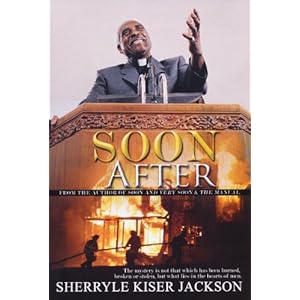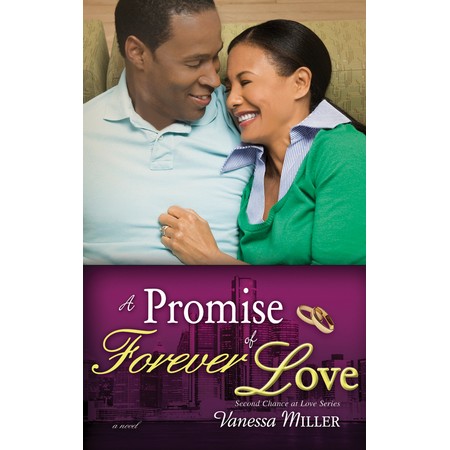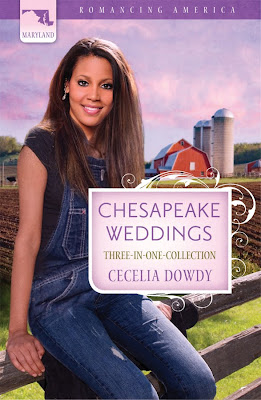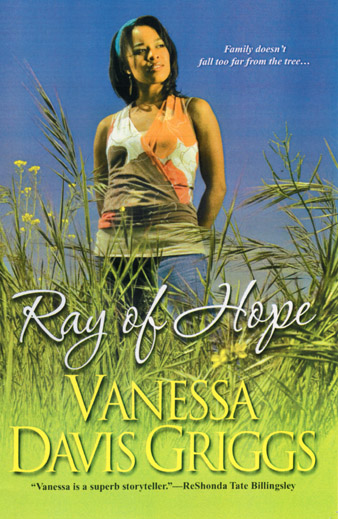book review! If you wish to join the FIRST blog alliance, just click the button. We are a group of reviewers who tour Christian books. A Wild Card post includes a brief bio of the author and a full chapter from each book toured. The reason it is called a FIRST Wild Card Tour is that you never know if
will be fiction, non~fiction, for young, or for old...or for somewhere in between!
***Special thanks to Maggie Rowe of Tyndale House Publishers, Inc. for sending me a review copy.***
Maureen Lang has always had a passion for writing. She wrote her first novel longhand around the age of 10, put the pages into a notebook she had covered with soft deerskin (nothing but the best!), then passed it around the neighborhood to rave reviews. It was so much fun she's been writing ever since. Eventually Maureen became the recipient of a
. Life took some turns after that, and she gave up writing for 15 years, until the Lord claimed her to write for Him. Soon she won a Noble Theme Award from American Christian Fiction Writers and has since published several novels, including Pieces of Silver (a 2007 Christy Award finalist), Remember Me,
. Maureen lives in the Midwest with her husband, her two sons, and their much-loved dog, Susie.
.
Publisher: Tyndale House Publishers, Inc. (August 4, 2010)
Lang does a superb job at grounding her readers. I'm in awe of how she infuses setting with character. I don't know how she does that, but I'm taking notes. :)
Part I
September 1916
Scope of War Broadens
Rumania joins Allied Powers with hopes of shortening the war
Germany has declared war in response, claiming Rumania disgracefully broke treaties with
Austria-Hungary and Germany. The Allied Powers, at the forefront including France, Britain, and Russia, welcome additional men and arms. They remind the world which country was the first to break a treaty when Germany marched into Belgium in direct defiance of an agreement to respect Belgium’s neutrality should international strife begin.
Fifteen nations are now at war.
La Libre Belgique
Chapter One
“Oh, God,” Isa Lassone whispered, “You’ve seen me this far; don’t let me start doubting now.”
A few cool raindrops fell on her upturned face, blending with the warm tears on her cheeks. Where was her new guide? The one she’d left on the Holland side of the border had said she needed only to crawl through a culvert, then worm her way ten feet to the right, and there he would be.
Crickets chirped, and from behind her she heard water trickle from the foul-smelling culvert through which she’d just crept. Some of the smell clung to her shoes and the bottom of her peasant’s skirt, but it was Belgian dirt, so she wouldn’t complain. The prayer and the contents of her satchel reminded her why she was here, in this Belgian frontier the occupying German army strove to keep empty. For almost two years Isa had plotted, saved, worked, and defied everyone she knew—all to get to this very spot.
Then she heard it—the chirrup she’d been taught to listen for. Her guide had whistled it until Isa could pick out the cadence from any other.
She edged upward to see better, still hidden in the tall grass of the meadow. The scant mist cooled her cheeks, joining the oil and ash she’d been given to camouflage the whiteness of her skin. She must have grown used to its unpleasant odor, coupled with the scent she had picked up in the culvert, because now she could smell only grass. Twigs and dirt clung to her hands and clothes, but she didn’t care. She, Isabelle Lassone, who’d once bedecked the cover of the Ladies’ Home Journal with a group of other young American socialites, now crawled like a snake across a remote, soggy Belgian field. She must reach that sound.
Uneven ground and the things she’d hidden under her cloak and skirt slowed her crawl. Her wrist twisted inside a hole—no doubt the entrance to some creature’s home—and she nearly fell flat before scuttling onward again. Nothing would stop her now, not after all she’d been through to get this far, not after everything she’d given up.
Then her frantic belly dash ended. The tall grass hid everything but the path she left behind, and suddenly she hit something—or rather, someone.
“Say nothing.” She barely heard the words from the broad-shouldered figure. He was dressed as she was, in simple, dark clothing, to escape notice of the few guards left to enforce the job their wire fencing now did along the border. Isa could not see his face. His hair was covered by a cap, and his skin, like hers, had been smeared with ash.
Keeping low, the guide scurried ahead, and Isa had all she could do to follow. Sweat seeped from pores suffocated beneath her clothes. She ignored rocks that poked her hands and knees, spiky grass slapping her face, dirt kicked up into her eyes by the toe of her guide’s boot.
He stopped without warning and her face nearly hit his sole.
In the darkness she could not see far ahead, but she realized they’d come to a fence of barbed wire. A moment ago she had been sweating, but now she shivered. The electric fences she’d been warned about . . . where bodies were sometimes trapped, left for the vultures and as a grim warning to those like her.
Her guide raised a hand to silence whatever words she might have uttered. Then he reached for something—a canvas—hidden in the grass, pulling it away from what lay beneath. Isa could barely make out the round shape of a motor tire. He took a cloth from under his shirt and slipped it beneath the fence where the ground dipped. With deft quickness, he hoisted the wire up with the tire, only rubber touching the fencing. Then he motioned for her to go through.
Isa hesitated. Not long ago she would have thought anyone crazy for telling tales of the things she’d found herself doing lately, things she’d nearly convinced her brother, Charles, she was capable of handling despite his urgent warnings.
She took the precious satchel from her back and tossed it through the opening, then followed with ease, even padded as she was with more secret goods beneath her rough clothing. Her guide’s touch startled her. Looking back, she saw him hold the bottom of her soiled cotton skirt so it would touch nothing but rubber. Then he passed through too. He strapped the tire and its canvas to his back while she slipped her satchel in place.
Clouds that had barely sprinkled earlier suddenly released a steady rainfall. Isa’s heart soared heavenward even as countless droplets fell to earth. She’d made it! Surely it would’ve been impossible to pass those electrified wires in this sort of rain, but God had held it off. It was just one more blessing, one more confirmation that she’d done the right thing, no matter what Charles and everyone else thought.
Soon her guide stopped again and pulled the tire from his back, stuffing it deep within the cover of a bush. Then he continued, still pulling himself along like a frog with two broken legs. Isa followed even as the journey went on farther and took longer than she’d expected.
She hadn’t realized she would have to crawl through half of Belgium to get to the nearest village. Tension and fatigue soon stiffened her limbs, adding weight to the packets she carried.
She heard no sound other than her own uneven breathing. She should welcome the silence—surely it was better than the sound of marching, booted feet or a motorcar rumbling over the terrain. Despite the triumph she’d felt just moments ago, her fear returned. They hid with good reason. Somewhere out there German soldiers carried guns they wouldn’t hesitate to use against two people caught on the border, where citizens were verboten.
“Let me have your satchel,” her guide whispered over his shoulder.
Isa pulled it from her back, keeping her eye on it all the while. He flipped it open. She knew what he would find: a single change of clothes, a purse with exactly fifty francs inside, a small loaf of bread—dark bread, the kind she was told they made on this side of the blockades—plus her small New Testament and a diary. And her flute. Most especially, her flute.
“What is this book?” His voice was hushed, raspy.
“A Bible.”
“No, the other one. What is it?”
“It’s mine.”
“What is it doing in this satchel?”
“I—I wanted to bring it.”
“What have you written in here?”
Instantly flushed with embarrassment, she was glad that he couldn’t see her face any better than she could see his under the cover of darkness. No one would ever read the words written in that diary, not even the person to whom she’d written each and every one. Well, perhaps one day he might, if they grew old together. If he let her grow old at his side.
“It’s personal.”
He thrust it toward her. “Get rid of it.”
“I will not!”
“Then I will.” He bolted from belly to knees, hurling the little book far beyond reach. It was gone in the night, splashing into a body of water that no doubt fed into the culvert she knew too well.
Isa rose to her knees, the object of her gaze vanished in the blackness. The pages that securely held each intimate thought, each dream, each hope for her future—gone. Every page a visit with the man she loved, now forever lost.
“How dare you! You had no right.”
The guide ignored her as he resumed the scuttle forward.
Fury pushed Isa now. That diary had meant more to her than this dark figure could know. When at last he stopped and stood beneath the low branches of a forest to scrape the wild heath off his clothes, Isa circled to confront him.
At that moment the clouds parted enough to allow a bit of moonlight to illuminate them. And there he was, in glorious detail—older, somehow, and thinner, but the black brows, the perfectly straight nose, the square jaw, and the eyes that with a single look could toss aside every sensible thought she might have. The very man about whom—and to whom—that diary had been written.
Her heart skipped wildly, rage abandoned. “Edward!”
All he offered was confused scrutiny, a glance taking her in from head to foot. She took off her hat and her blonde hair tumbled to her shoulders. In the dim light he might not be able to see the blue of her eyes, but surely he saw her familiar smile, the shape of her face, and the welcome that sprang from the deepest part of her.
The look on his face changed from confusion to recognition. Then astonishment.
“Isa?”
She threw herself toward him, and he received her as she dreamed he might one day, with his strong arms enveloping her, his face smiling a welcome. His eyes, if only she could see them better in the darkness, must be warm and happy. She longed for him to kiss her and raised her face, but there the dream ended. He pushed her away to arm’s length.
If there had been any warmth in his eyes a moment ago, it was gone now, replaced by something not nearly as pleasant.
“What are you doing here? I thought it was a fool’s mission to bring somebody in. A girl, no less. And it’s you, of all people!”
She offered a smile. “Well, hello to you too, Edward. After more than two years I’d expected you to be happy to see me. A guide was supposed to take me to you; no one told me it would be you.”
“We’ll retrace right now, young lady.” He took one of her hands and moved away so easily that he must have believed she would follow.
“I’m not going anywhere, except home. If you knew what I’ve been through to get here, you wouldn’t even suggest such an absurd notion.”
“Absurd? Let me give you the definition of the word, Isa. Absurd is smuggling someone into a country occupied by the German army, into a starving prison camp. Do you know how many people have been killed here? Is the rest of the world so fooled by the Germans that you don’t even know?”
“Edward, I’m sure no one on the outside knows everything that’s going on, except maybe Charles. He was in France, caught behind the lines. And now he’s working with the British, not far from where you were born. In Folkestone.”
“Your brother? Working? Now there’s a new concept. He should have talked you out of coming here.”
Isa wouldn’t admit just how hard Charles had tried. “I found my guide through him. Mr. Gourard—”
“Gourard! He was here—he was with us the day my father was shot.”
“Oh, Edward.” She leaned into him. “He told me your father was killed.” Tears filled her eyes, an apparently endless supply since she’d been told the news. “I’m so sorry.”
He pushed her away, but not before she saw his brows dip as if to hide the pain in his eyes. “Look, we can’t stand here and argue. The rain was working with us to keep the sentries away, but if we have to go through that fence when it’s this wet, we’d better go now before it gets worse. We’ve got to keep moving.”
“I’m not going back.” If he knew her at all, he would recognize the tone that always came with getting her way.
He stood still a long moment, looking one direction, then the other, finally stooping to pick up her satchel—now lighter with the absence of one small diary—and heading back to the grassland.
She grabbed his arm. “No, Edward! I won’t go. I—I’ll do anything to stay. I’ve been through too much to give up now.”
He turned on her then, with a look on his face she’d never seen before—and his was a face she’d studied, memorized, dreamed of, since she was seven and he twelve. That the war had aged him was obvious, and yet he was still Edward.
He dropped the satchel to clutch both of her arms. “Do you think I’ll let you walk into a death camp? That’s what Belgium is, even your precious Brussels. Go back home, Isa. Your parents got you out. Before all this. Why would you be foolish enough to come back?”
“I came because of you—you and your family. And because this is my home.”
His grip loosened, then tightened again. He brought his face close, and Isa’s pulse pounded at her temples. But there was no romance in his eyes. They were so crazed she couldn’t look away if she wanted to.
“Isa,” he said, low, “I’m asking you to go back.”
Her heart sped. “Only if you come out with me,” she whispered. Then, because that seemed to reveal too much and yet not enough, she added, “After we get your mother and Jonah.”
He dropped his hands and turned away, facing the grassland instead of the trees.
She could tell him what she had hidden inside her flute; surely that would change his mind about the wisdom of her actions. But something held her back. If she gave it to him now, he might simply accept the flute but return her to the border anyway. No, she wouldn’t reveal her secret. Not yet.
Isa picked up her satchel and started walking—deeper into Belgium, away from the grassland, into the wood that no doubt served a nearby village. Beneath her skirt and blouse, the other goods she carried tightened her clothes so she could barely breathe, but she didn’t stop. She didn’t even look back.
Before long she heard Edward’s footfall behind her. At first they did not speak, and Isa didn’t care. Her journey had ended the moment she saw his face. This was where she’d longed to be. She’d prayed her way across the Atlantic, escaped the wrath of her brother and all those he worked with. Days of persuasion led to downright begging, until she’d tried going around them and contacted Brand Whitlock, the American ambassador to Belgium, to arrange her passage home to Brussels.
But her begging had accomplished nothing.
Yet her journey had not ended there, thanks to the whispered advice of a clerk who worked in Folkestone with her brother. When Charles went off on an errand, another man approached her and spoke the name of a guide who started Isa on the final leg of her journey to Edward’s side.
“We’re coming to the village road,” Edward said flatly. “I was told your papers would give your name as Anna Feldson from Brussels, which match mine as John Feldson. We are cousins, and I am bringing you home from visiting our sick grandmother in Turnhout. There is a German sentry on the other side of this village, and we’ll no doubt be stopped. There won’t be anyone on the street at this hour, which is a good thing because even the locals won’t trust us. Nobody likes strangers anymore, especially this close to the border. So if we do see anybody, keep to yourself and don’t say a word.”
She nodded. A few minutes later the trees parted and she saw shadows of buildings ahead. The rain had let up to a drizzle again, and the moon peeked out to give them a bit of light. She wasn’t soaked through but knew a wind would send a chill, especially now that the anxiety of crawling through the underbrush was behind them.
Edward stopped. “I’m only going to ask once more, Isa, and then I’ll not ask again.” Now he turned to look directly into her eyes. “We have enough darkness left to make it safely. Let me take you back to the border.”
“I can’t,” she whispered. When the crease between his eyes deepened, she said, “This is where I belong, Edward. It must be where God wants me, or I never would have succeeded.”
“God.” He nearly snorted the word before he turned from her and started walking again toward the village.
“Yes!” She hurried to catch up. “If I told you all the ways He’s protected me so I could get this far, you wouldn’t doubt me.”
Edward turned on her. “I refuse to hear it, Isa. God’s not in Belgium anymore; you’ll find that out for yourself soon enough.”
His words stung. God had used Edward to show her His love to begin with, and she knew He wasn’t about to let Edward go. Had Edward let go of God, then? When? And why, when he must need God more than ever if things here were harder than she had imagined?
They walked through the quiet village without incident, the soft leather soles of their wet shoes soundless on the cobbles. The village was so like many others of Belgium: a few small homes made of familiar brick, a stone church with its tall bell tower, and a windmill to grind grain into flour. So different from the frame homes or sprawling businesses Isa had left behind in New York, but so dear that she wanted to smile as deeply as Edward frowned.
At the other end of the narrow village street, there was indeed a German officer stationed on the road. Isa’s heart thudded so loudly in her ears she wondered if she would be able to hear over it, or if the soldier would hear it too.
But he said nothing, not a word, at least not to her. He looked at them, looked at their papers, then asked Edward in rather bad French why they were traveling so early in the morning, having come so far from Turnhout already.
Edward replied that the steam tram was unreliable but that they hoped to reach the next village in time to catch it anyway.
The soldier waved them through.
“That was easier than I expected,” Isa whispered once they were well away.
“Don’t underestimate other soldiers based on that one. A suspicious one with a rifle can do as he pleases.”
But Isa was too relieved to be gloomy. “Amazing how I can still understand you through your clenched jaw, Edward.”
Edward didn’t look at her. “We have to be in Geel in less than an hour if we expect to make the tram.”
They made their way in silence, under sporadic drizzle and meagerly emerging sunlight. When at last they came to the next town, it was quiet until they reached the tram station, where soldiers outnumbered civilians. So many soldiers did what the rain couldn’t: dampened Isa’s spirits.
She had a fair understanding of German, but she could barely keep up. Not that she needed to; the soldiers ignored her, speaking of mundane things to one another, hardly worthy of interest. She prayed it would stay that way, that she and Edward would be invisible to each and every armed soldier.
A commotion erupted from the front of the platform. German commands, a snicker here and there. Silence from the civilians.
A man not much older than Edward was forced at gunpoint to open the packet he carried, to remove his coat and hat, even his shoes. A soldier patted him from shoulder to ankle.
Isa could barely watch and wanted more than anything to turn away. To run away. She told herself to look elsewhere, to allow the victim that much dignity, but was transfixed by the sight of such a personal invasion. Her throat tightened so that she couldn’t swallow, could barely breathe. She couldn’t possibly withstand such a search, and not just for modesty’s sake. “Edward . . .”
“Keep your eyes down and don’t say a word.”
“But—”
“Quiet.”
A tram entered the station and the man was allowed to board, everyone else soon following. Edward nudged Isa and they took seats.
The secret goods beneath Isa’s cloak and clothing clung to her skin, as if each sheet, each letter were as eager as she not to be noticed. She feared the slightest move would sound a rustle. Carefully, slowly, she stuffed her satchel beneath the seat, wanting to take comfort that it had escaped notice. If her flute was looked at with any scrutiny . . . She couldn’t bear to think of it.
The vehicle rumbled along far slower than the pace of Isa’s heartbeat. She wanted the luxury of looking out at the land she loved, the fields and the villages, the rooftops and steeples, the mills and the farms, but her stomach didn’t allow her eyes to enjoy any of it. At each stop a few soldiers departed, but new ones joined them. She tried not to study what went on, at least not conspicuously, but longed to learn how the soldiers chose which civilians to search. It appeared entirely random. More men were searched, but women weren’t spared. One holding a baby was made to unswathe her child, who screamed and squirmed when jostled from its secure hold.
Isa did as Edward told her, kept quiet, eyes cast downward or upon the passing landscape that under any other circumstances would have been like a gift from the finest art palette. One hour, then two. After the third she could stand it no longer. Surely they were near their destination? But she had no idea how far Louvain might be at the rate they were going with so many stops and searches. No doubt they could travel more safely by foot without losing much time.
Six times she nearly spoke, to urge Edward to take her out of this tram. Six times she held back. But one more search and she could resist her impulses no more.
“I—I must get off the tram, Edward. I’m sick.”
“Sick?”
“Yes, I must get away from—” She wanted to say away from the soldiers but dared not in case any of them spoke French and overheard. “I must get away from this awful tram. The stop and go is making me ill.”
“Another hour. Surely you can last?”
She shook her head even as from the edge of her vision she saw a soldier looking her way. How do you not look guilty when you’re completely, utterly, culpable?
Isa stood as the tram came to a slow stop at the next intersection. She kept her back to the soldiers, jumping to the ground just as soon as it was safe to do so. Then, without waiting for Edward, she walked forward as if she knew exactly where she was going.
She walked a block, well out of sight from the disappearing tram. There she stood . . . not amid one of the lovely villages, with their ancient way of life so quaintly preserved and appreciated. Instead, she found herself at the end of a row of destruction. Crumbling homes, demolished shops. Burned ruins of a town she once knew. Aerschot, where she’d dined and laughed and dreamed of walking the street with Edward’s hand in hers.
A moment later Edward’s shadow joined hers. “Are you positively mad?”
“We’re in Aerschot?” she asked, barely hearing his question.
“Obviously. And several hours’ walk from Brussels. Do you know how ridiculous that was? We don’t need any complications, Isa.”
She faced him. “Your contact didn’t tell you what I’d be carrying, did he?”
Suspicion took the place of the anger on his face. “What?”
“Well,” she began slowly, “I would try to show you, but among other things, I’m afraid I’d never get everything back in place.”
He let out what she could only call a disgusted sigh as he ran a hand through his dark hair—hair that seemed thinner and yet sprang instantly back into place, symmetrical waves that framed his forehead, covered his ears. He needed a haircut, but she found she liked the way he looked too much to think of changing anything, even the length of his hair.
“Isa, Isa,” he said, shaking his head all the while. “I should make you take out every scrap and burn it right here and now. Do you know what could have happened if you’d been searched on that tram?”
“Which is why we’re no longer on it.”
“You might have warned me!”
“I tried!”
He paced away, then turned to stand nearly nose-to-nose with her again. Not exactly the stance she’d dreamed of when she’d imagined him at such close proximity, but it sent her pulse racing anyway.
“You could have been shot. Do you know that? Shot.”
She nodded. “They warned me.”
His brows rose and his mouth dropped open. “Then why did you agree to the risk?”
“Gourard told me there are no newspapers, no information at all about what the rest of the world is doing to try to save Belgium and end this war. How have you lived so long without knowing what’s going on? I have the best portions of a couple of recent newspapers. And I have letters, too. Letters from soldiers. Don’t their families deserve to know they’re all right?”
“It doesn’t matter what I think. Gourard shouldn’t have taken your life so lightly or trusted such things to a young, naive child.”
“Child! I’m perfectly capable of deciding what risks I will or won’t take. I’m the one to decide what I will or won’t do for Belgium.”
“It was bad enough for you to come back, but to bring contraband—it’s beyond foolish.”
“Edward, don’t be angry with me. I’ll deliver the letters and then be done with it if you like, if it’s too dangerous for us. But I won’t abandon what I brought with me.”
“I don’t care about the risk for me. I’ve done so many things the Germans could shoot me for that one more thing doesn’t matter. It’s you. Maybe the Germans wouldn’t shoot you—being just a girl—but who knows?”
“I’m not—” . . . just a girl. But she didn’t bother with the words. She doubted they’d convince him.
She looked away, embarrassed. All she could think of when she agreed to smuggle the letters was how desperately she had wanted news of him and how other families cut off from their loved ones must be desperate too. She couldn’t have refused to take a chance with the letters and lived with herself. “I agreed to take the risk for the same reasons you’ve taken so many. Your mother and father didn’t teach values only to you and Jonah, you know.”
He emitted something between a moan and a laugh, then took her arm. “We’re going somewhere for you to take out the letters. And the newspaper clips.”
“But, Edward—”
He looked at her then, and she could see he was not to be argued with. “I’ll carry them in my cloak. It won’t be the first time.”
Monster Armored Cars Used by British in Charge on the Somme
Called “tanks” by those who’ve seen them, Allied soldiers themselves refer to these huge traveling fort machines as “Willies.” Driven like motorcars but able to scale barbed wire, leap trenches, knock down houses, and snap off tree limbs, they are a formidable weapon indeed and will no doubt play an important role in the defeat of the Germans.
La Libre Belgique
The purpose of Christian Fiction is to share Good storytellers with you. Sometimes these stories aren’t wrapped in pretty packages. Oftentimes these books aren’t discussed in Christian fiction circles, but they should. So in honor of Banned Books Week I want to share a Good book that some of our churches have removed[or removed] from some Georgia schools.(I live in Georgia.) Moreover, I want to share with you why fiction matters and this book shouldn’t be banned.
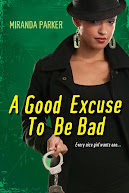











.jpg)

